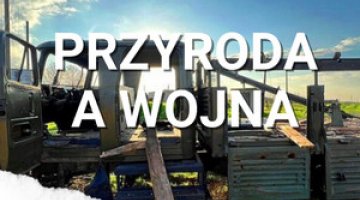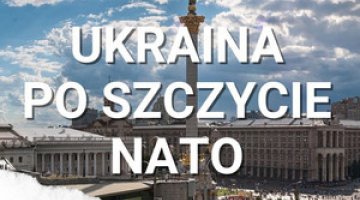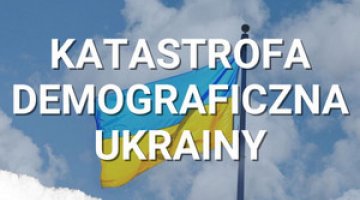Russia wants to block dialogue between Yanukovych and the West
Russia is demonstrating its support for President Viktor Yanukovych and is stressing that the protests in Ukraine are illegal and not representative in nature. It has accused the West of instigating the protests and accuses Western politicians coming to Kyiv of unacceptable interference in the internal affairs of a sovereign country. Reactions in Russia reveal its growing anxiety at the involvement of EU countries and the US in events in Ukraine since this may lead to an unfavourable development of the situation in Ukraine, from Russia’s point of view. It may be inferred from statements made by Russian politicians and messages coming from the media which support them that Moscow wishes to block the possibility of dialogue between Yanukovych and the West by provoking him to undertake measures unacceptable to his Western partners, such as the use of force against protesters.
The position of the Russian government
On 6 December in Sochi a meeting was held between President Viktor Yanukovych and President Vladimir Putin. The media coverage of it was dominated by images of a cordial handshake between the two presidents, intended to demonstrate Russia's support for the Ukrainian president. The lack of official information about the content of the talks gave rise to speculation and suspicions that the two presidents had reached an agreement about Ukraine joining the Customs Union (by 2015) in return for Russian loans (ranging from 5 to 15 billion US dollars) and lower prices for Russian gas. This speculation only added fuel to the demonstrations in Ukraine. The spokesman for the Russian president, Dmitry Peskov, on the same day declared that the issue of Ukraine's membership in the Customs Union had not been discussed in Sochi and the meeting had focused on the status and future prospects of Russian-Ukrainian co-operation in the area of finance and loans.
On 10 December the Russian State Duma adopted a resolution „On the situation in Ukraine” in which it called on the West to end its pressure on Ukraine and appealed to the Ukrainian opposition to refrain from illegal actions which are destabilising the country. Russian Foreign Minister Sergei Lavrov (on 6 December) and Prime Minister Dmitri Medvedev (on 7 December) had already accused the Western states and their politicians of interfering in Ukraine's internal affairs. They both emphasised that in Vilnius Ukraine had the right to refuse to sign an agreement which it deemed to run counter to its interests.
The Russian government has not made any official statements about the “March of Millions” held in Kyiv on 8 December or about the actions taken by the police over the following days. However, the Russian deputy prime minister Dmitry Rogozin and the head of the foreign affairs committee of the Russian Duma, Alexei Pushkov have been commenting on the developments in Ukraine on Twitter. They have both dismissed Ukraine's European aspirations. Pushkov underlined that Ukraine has been taken hostage by an aggressive minority. In his opinion the Ukrainian opposition has decided to stage protests with the help of the EU because it realises that it would lose in a democratic election. In further comments he accused the Ukrainian opposition of seeking to make Ukraine subordinate to the EU and the US and he blamed the West for pursuing a colonial policy towards Ukraine.
The Communist Party of the Russian Federation (CPFR) has issued a demand to find and punish those responsible for the destruction of the monument to Lenin in Kyiv. According to the assessment of the party's leader, Gennady Zyuganov, the protests in the streets of Ukraine are unacceptable acts of vandalism and Russophobia.
The media coverage
In the Russian media the situation in Ukraine continues to receive substantial coverage. When covering the demonstrations, the media stresses that they are not representative in nature. They consistently underestimate the number of protesters in Kyiv, putting it at a maximum of several thousand people. Constant suggestions or even overt accusations crop up that the EU countries and the US are inspiring or even organising and directly funding the protests in Ukraine. The Russian state-controlled media (particularly the RTR television channel in its analytical programme “Vesti Nedeli” broadcast on 9 December) also attempted to compromise the leaders of the Ukrainian opposition, especially Vitali Klitschko, hinting at his links with homosexual circles; this is still controversial in post-Soviet societies.. The media has also emphasised the aggressive behaviour of the protesters and their readiness to mount an attack on state buildings. They repeated the information about the destruction of the Kyiv monument to Lenin many times; this was presented as an example of the destructiveness of the demonstrations and fascist sentiment among their participants. The media focused on the number of police officers injured; they emphasised how irresponsible the leaders of the protests were and accused them of intending to use the demonstrations in order to seize power in a coup. The media regularly warn against the escalation of violence and have even predicted such violent developments or the disintegration of Ukraine. They also frequently give information about plans to impose a state of emergency in Ukraine.
Conclusions
The protests in Ukraine present a huge challenge for Russia – both for its reputation in the international arena and in internal affairs. Efforts to minimise the number of participants in the demonstrations in Kyiv, to underline their aggressive character and the accusations of Western provocation are aimed at undermining the pro-European forces in Ukraine in the eyes of Russian public opinion and among recipients of the Russian media (mainly television) in the countries of the Commonwealth of Independent States. The Kremlin wants to minimise the risk of protests spreading beyond Ukraine, including to Russia, as it remembers the Ukrainian Orange Revolution which initiated a series of important protests in the post-Soviet area. Furthermore, Russia is seeking to divert attention from the fact that the mass demonstrations in Ukraine are aimed against the pro-Russian direction that the Ukrainian government has taken. Russia is thus trying to temper the negative impact the protests in Kyiv will have on the perception of Eurasian integration.
Peskov's statement about the meeting between Yanukovych and Putin in Sochi indicates that Russia is aware of the fact that allegations about the signing of the agreement on the Customs Union may cause an escalation of the protests in Ukraine and weaken the position of President Yanukovych. Russia will therefore probably avoid taking a triumphant tone while discussing its dialogue with Ukraine and its results.
Russia's growing irritation with the involvement of the EU and representatives of EU countries, particularly Germany and Poland, in attempts at mediation in Ukraine is visible. It is seen in Russia as a token of support for the Ukrainian opposition and pressure put on President Yanukovych and his allies, which is contrary to Russia's interests (a political compromise reached with the opposition, a return to the path of European integration, a shift from forming closer bonds with Russia and the Customs Union).
The fact that the Russian media is consistently emphasising the aggressive nature of the protesters and the possibility of a state of emergency being declared and the demonstrations being cleared by the Ukrainian authorities suggests that the Kremlin is interested in this scenario being played out. It may also show that the Kremlin is putting pressure on President Yanukovych to decide on taking such measures as this would make it impossible for the Ukrainian president to sign the agreement with the EU and would condemn him to co-operation with Russia following the terms and conditions dictated by the Kremlin.





